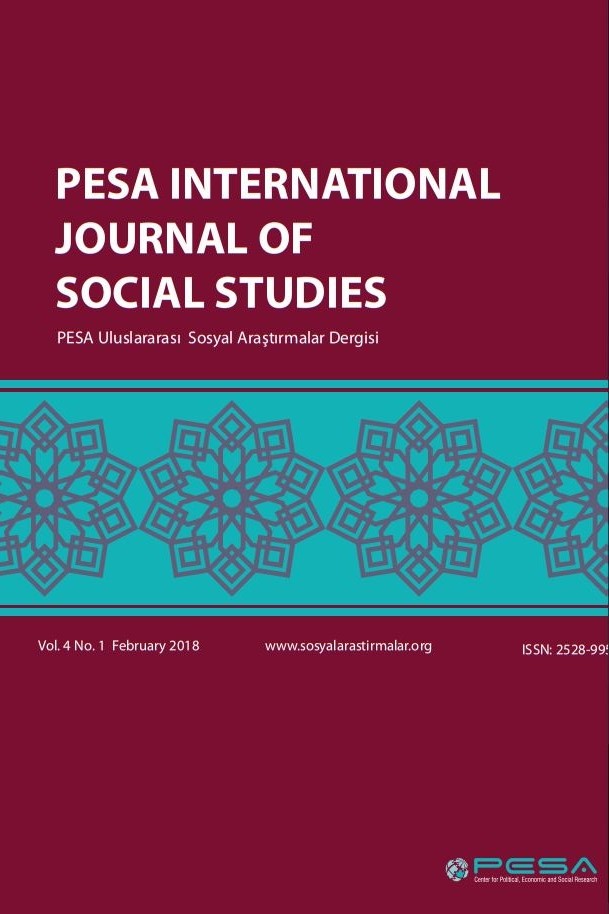Ahmet Mithat Efendi’de ‘Aşk’, ‘Sevda’ Kavramları Çerçevesinde İktisat Algısı ve Protestan Ahlakı
Ahmet Mithat Efendi, yaşadığı dönemde çağdaşı olan edebiyatçılardan çalışma alanlarıyla, karakteriyle, bilgi ve becerisiyle bize farklı bir portre sunar. Herkesin Abdülhamit düşmanı olduğu bir dönemde o ‘Abdülhamitçi’dir; yaşadığı yıllarda siyaseten ‘özürlü’dür, kabul görmez. Çok okuyan, çok yazan, gazete ve matbaası olan bir edebiyatçımızdır; birçok gazete çıkarır. Karakter olarak, gazete okuyan bir arabacıyı görünce sevinen; kızarsa, kızdığı adamı dövebilecek bir kişiliğe sahiptir.Ahmet Mithat Efendi ‘çalışma’ kavramını ‘aşk’ kavramıyla eşitler. 9 Mart 1294 tarih ve 866 sayılı Vakit gazetesinde yayımladığı özel bir maddeye Sevdâ-yı Sa’y ü Amel başlığını koyar. Daha sonra bu yazıda eksiklikler görür. “Besbelli gazete bendleri o kadar amîk bir fikir ve o kadar büyük bir dikkatle yazılmadığı için mezkûr bend’e muahharen” kendisinin de beğenemediği “birtakım noktalar derc” etmiş olduğunu düşünür (A.M.Efendi, 2016: 2)1. Aynı konu çerçevesinde bir kitap çalışması yapar, Sevdâ-yı Say ü Amel adında bir kitap yazar. Bu madde birtakım devlet memurlarının işten çıkarıldığı bir zamanda kaleme alınmıştır. Batı kapitalizminin temellerinde yer alan ‘protestan’ ilke ve sloganlara kendi uygarlığımızdan deliller getirmeye çalışması, bürokrasi eleştirisi açısından da ilginçtir. Bu yazıda Ahmet Mithat Efendi’nin geri kalmışlığımız hakkındaki düşüncelerine; ‘Hâce-i Evvel’in o günün aydınının Batı uygarlığından ne kadar etkilendiğine, bürokratik hantallığa dikkat çekilmeye çalışılacaktır.
Anahtar Kelimeler:
Ahmet Mithat Efendi, Batı Uygarlığı, Çalışma, Bürokrasi
Within Conceptual Framework of ‘Love, Melancholy’ by Ahmet Mithat Efendi; The Protestant (Ethic) Values and Perception of Economics
Ahmet Mithat Efendi, when compared with his contemporaries in literary domain, presents adifferent portrait with his distinguished characters, knowledge and skills. When it was the time, for almost everybody, of Antogonisms against Abdülhamit, he was he was the pro-Abdülhamit figure;He was considered as ‘politically handicapped’ and was not welcome during his life-span. He was a well-read, prolific writer who owned a printing press house and published several of his own newspapers.He was a man of eccentric personality who displayed peculiar behaviors such as becoming overjoyed with the sight of a cart-horse-driver reading a paper as well as kicking down a man whom he felt furious about. Ahmet Mithat equals the concept of work with that of Love .In on of the issues of the paper (866) Vakit (Time) dated March,9, 1294 he made a speacial entry with the title Sevda-yı Sa’yü Amel(Love of work).He noticed, later on, some missing and deficient points in the article and explains and accepts ‘having seen the above-mentioned part of the article which comprised obviously of unclear and indifferent mode of work which he could not approve of’.He thinks, by doing so, he made somethings clear (A. Mithat Efendi, 2016:2).He also exerted some efforts for a book on similar topic.He wrote a book titled Sevdâ-yı Say ü Amel (Love of Work). This entry coincides with the time when some of the state personnel was removed from their office. While trying to interprete protestant mottos in western Capitalism, his ideas are significant in that he tried to pick up some evidence from our own civilization specifically in terms of bureaucratic criticism. In this study, points of focus are on the ideas of Ahmet Mithat Efendi as to why we fell behind, how ıntelligentsa of the time were influenced by western civilisation and bureaucratic unwieldiness.
Keywords:
Ahmet Mithat Efendi, Western civilization, Work, Bureaucracy,
___
- A.M.EFENDİ Sevdâ-yı Say ü Amel, Kırk Anbar Matbaası, İstanbul, 1296.
- ADORNO, T.W. Minima Moralia, Metis Yay. İstanbul, 2009 (6.Basım).
- BACHELARD,G. Mekânın Poetikası, Kesit Yay. İstanbul, 1996. BAUMAN, Z. Akışkan Aşk, Versus
- Yay.(I.Ergüden), İstanbul, 2008.
- ÇETİN, İ. Mufassal Medeni Ahlak, Dilara Yay. İstanbul, 1993.
- ESEN, N. HİKÂYE Anlatan Adam: Ahmet Mithat, İletişim Yay. İstanbul, 2014.
- MORAN, B. Türk Romanına Eleştirel Bakış I, İletişim Yay. İstanbul, (III.Basım), 1990.
- RİMBAUD, A. Cehennemde Bir Mevsim, (Çev.Ö.İnce), Can Yay. İstanbul, 1991.
- TANPINAR,A.H. 19.Asır Türk Edebiyatı Tarihi, Çağlayan Kitabevi (9.Baskı), İstanbul, 2001.
- WEBER, M. Protestan Ahlakı ve Kapitalizmin Ruhu (Çev.Z.Gürata), Ayraç Yayınevi, Ankara, 1999.
- ISSN: 2528-9950
- Yayın Aralığı: Yılda 3 Sayı
- Başlangıç: 2015
- Yayıncı: Politik Ekonomik ve Sosyal Araştırmalar Merkezi
Sayıdaki Diğer Makaleler
İç Göç Sürecinde Birey Rollerinin Toplumsal Cinsiyet Açısından Değerlendirilmesi
Yusuf GENÇ, Hüseyin Zahid KARA
Amina Ibrahim Inkani, Sani Abubakar Mashi
How Organizational Structures, Policies and Practices Trigger Corruption
Osama Qayyum JANJUA, Waleed SHEHZAD
Hegemonya ve Karşı-Hegemonik Sızıntılar: Yeni Bir Kavramsallaştırma Denemesi
Türk Tipi Başkanlık Sistemi Tartışmaları
Bahâr-ı Efkâr’a Göre Keçecizâde İzzet Molla’nın Şiir Anlayışı - I: İdeal Şiirin Vasıfları
Postmodern İnsanın Tanrı Anlayışı
Florentina Shala BRAHA, Vilard BYTYQI, Dardan VUNIQI, Fadil BERİSHA
Ahmet Mithat Efendi’de ‘Aşk’, ‘Sevda’ Kavramları Çerçevesinde İktisat Algısı ve Protestan Ahlakı
